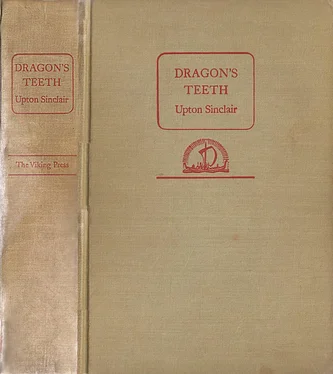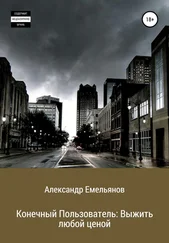Пользователь - o 3b3e7475144cf77c
Здесь есть возможность читать онлайн «Пользователь - o 3b3e7475144cf77c» весь текст электронной книги совершенно бесплатно (целиком полную версию без сокращений). В некоторых случаях можно слушать аудио, скачать через торрент в формате fb2 и присутствует краткое содержание. Жанр: Старинная литература, на русском языке. Описание произведения, (предисловие) а так же отзывы посетителей доступны на портале библиотеки ЛибКат.
- Название:o 3b3e7475144cf77c
- Автор:
- Жанр:
- Год:неизвестен
- ISBN:нет данных
- Рейтинг книги:4 / 5. Голосов: 1
-
Избранное:Добавить в избранное
- Отзывы:
-
Ваша оценка:
- 80
- 1
- 2
- 3
- 4
- 5
o 3b3e7475144cf77c: краткое содержание, описание и аннотация
Предлагаем к чтению аннотацию, описание, краткое содержание или предисловие (зависит от того, что написал сам автор книги «o 3b3e7475144cf77c»). Если вы не нашли необходимую информацию о книге — напишите в комментариях, мы постараемся отыскать её.
o 3b3e7475144cf77c — читать онлайн бесплатно полную книгу (весь текст) целиком
Ниже представлен текст книги, разбитый по страницам. Система сохранения места последней прочитанной страницы, позволяет с удобством читать онлайн бесплатно книгу «o 3b3e7475144cf77c», без необходимости каждый раз заново искать на чём Вы остановились. Поставьте закладку, и сможете в любой момент перейти на страницу, на которой закончили чтение.
Интервал:
Закладка:
always carry in his memory. When the storm of the orchestra drowned out Hansi's fiddle, the
listener was leaping to a mountain-top and from it to the next.
Others must have been having the same sort of adventure, for when the last note sounded
they started to their feet and tried to tell the artist about it. Lanny saw that his brother-in-law
had won a triumph. Such a sweet, gentle fellow he was, flushed from his exertions, but even
thinner than usual, showing the strain under which he was living. People seemed to realize
that here was one who was not going to be spoiled by adulation. He wasn't going to enjoy
himself and his own glory, he would never become blase and bored; he would go on loving his
art and serving it. Nobody in that hall failed to know that he was a Jew, and that this was a
time of anguish for his people. Such anti-Semitism as there was in Paris was not among the
art-lovers, and to shout "Bravo!" at this young virtuoso was to declare yourself for the cause
of freedom and human decency.
Lanny thought about the great composer, friend of mankind and champion of the oppressed.
His concerto had been played badly in his own lifetime, and what a revelation it would
have been to him to hear it rendered by a soloist and a conductor, neither having a score. But
then Lanny thought: "What would Beethoven think if he could see what is happening in the
land of his birth?" So the dreams of art fled, and painful reality took their place. Lanny
thought: "The German soul has been captured by Hitler! What can he give it but his own
madness and distraction? What can he make of it but an image of his distorted self?"
X
Hansi always wanted to be taken straight home after a performance; he was exhausted, and
didn't care for sitting around in cafes. He entered the palace and was about to go to his room,
when the telephone rang; Berlin calling, and Hansi said: "That will be Papa, wanting to know
how the concert went."
He was right, and told his father that everything had gone well. Johannes didn't ask for
particulars; instead he had tidings to impart. "The Reichstag building is burning."
"Herrgott!" exclaimed the son, and turned and repeated the words to the others.
"The Nazis are saying that the Communists set fire to it."
"But, Papa, that is crazy!"
"I must not talk about it. You will find the news in the papers, and do your own guessing. The
building has been burning for a couple of hours, and they say that men were seen running
through it with torches."
"It is a plot!" exclaimed Hansi.
"I cannot say; but I am glad that you are not here. You must stay where you are for the
present. It is a terrible thing."
So Hansi did not go to bed for a long while. They sat and talked, and Lanny, who had
friends on Le Populaire, called up that paper to get further details. It was believed that the
great building was gutted, and the government was charging that it had been deliberately fired
by emissaries of the Red International.
All four of the young people were familiar with that elaborate specimen of the Bismarck style
of architecture, and could picture the scenes, both there and elsewhere in the city. "It is a
frame-up," said Bess. "Communists are not terrorists." Lanny agreed with her, and Irma,
whatever she thought, kept it to herself. It was inevitable that every Communist would call it a
plot, and every Nazi would be equally certain of the opposite.
"Really, it is too obvious!" argued Hansi. "The elections less than six days away, and those
scoundrels desperate for some means of discrediting us!"
"The workers will not be fooled!" insisted Bess. "Our party is monolithic."
Lanny thought: "The old phonograph record!" But he said: "It's a terrible thing, as Papa
says. They will be raiding Communist headquarters all over Germany tonight. Be glad that you
have a good alibi."
But neither of the musicians smiled at this idea. In their souls they were taking the blows
which they knew must be falling upon their party comrades.
XI
What happened in the Reichstag building on that night of February 27 would be a subject of
controversy inside and outside of Germany for years to come; but there could be no doubt
about what happened elsewhere. Even while the four young people were talking in Paris, the
leader of the Berlin S.A., Count Helldorf, was giving orders for the arrest of prominent
Communists and Socialists.
The list of victims had been prepared in advance, and warrants, each with a photograph of
the victim in question. The Count knew that the Marxists were the criminals, he said; and
Goring announced that the demented Dutchman who was found in the building with matches
and fire-lighters had a Communist party membership card on him. The statement turned out
to be untrue, but it served for the moment.
Next day Hitler persuaded Hindenburg to sign a decree "for the safeguarding of the state
from the Communist menace," and after that the Nazis had everything their own way. The
prisons were filled with suspects, and the setting up of concentration camps began with a
rush. The Prussian government, of which Goring was the head, issued a statement concerning
the documents found in the raid on Karl Liebknecht Haus three days before the fire. The
Communists had been plotting to burn down public buildings throughout Germany, and to
start civil war and revolution on the Russian model; looting had been planned to begin right
after the fire and terrorist acts were to be committed against persons and property. The
publication of these documents was promised, but no one ever saw them, and the story was
dropped as soon as it had served its purpose—which was to justify the abolishing of civil
liberties throughout what had been the German Republic.
XII
As the evidence began to filter into the newspapers of Britain and France, the young Reds
and Pinks spent many an hour trying to make up their minds about one of the great "frame-
ups" of history. What brain had conceived it? What hand had carried it out? For the former
role their suspicions centered upon a German World War aviator who had fled to Sweden,
where he had become a dope addict and had been in a psychopathic institution. Hermann
Goring was a great hulk of a man, absurdly vain, with a fondness for gaudy uniforms which
was to make him the butt of Berlin wits; he was also a man of immense energy, brutal and
unscrupulous, the perfect type of those freebooters who had ravaged the borders of the German
empire in medieval times, had given themselves titles, and now had huge white marble statues of
themselves in the Siegesallee, known to the Berlin wits as "the Cemetery of Art."
Hermann Goring had got his titles: Minister without Portfolio, Federal Commissioner for Air
Transport, Prussian Minister of the Interior. They carried the same grants of power as in the
old free-booting days, but unfortunately they were subject to elections; on the following
Sunday the proletariat might go to the polls and strip Hermann of his glories—and this would
be extremely annoying to a man of aristocratic tastes, a friend of the former Crown Prince and
of Thyssen. As it happened, the man of action was in position to act, for his official residence
was connected with the Reichstag building by a long underground passage; also he had at his
command a well-trained army, eager to execute any command he might give. What did a
building amount to, in comparison with the future of the.N.S.D.A.P.?
Читать дальшеИнтервал:
Закладка:
Похожие книги на «o 3b3e7475144cf77c»
Представляем Вашему вниманию похожие книги на «o 3b3e7475144cf77c» списком для выбора. Мы отобрали схожую по названию и смыслу литературу в надежде предоставить читателям больше вариантов отыскать новые, интересные, ещё непрочитанные произведения.
Обсуждение, отзывы о книге «o 3b3e7475144cf77c» и просто собственные мнения читателей. Оставьте ваши комментарии, напишите, что Вы думаете о произведении, его смысле или главных героях. Укажите что конкретно понравилось, а что нет, и почему Вы так считаете.




